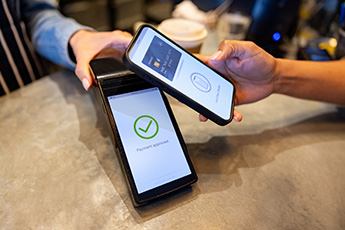Do you know which planet was the first to be discovered with the telescope? If you guessed Uranus, you are right. Not all questions have one right answer though. Today we bring you our thoughts on three questions provided by bankers that you may find of interest regarding women and minority-owned businesses, mobile-first credit cards, and remote employee feedback.
Q: Women and minority-owned businesses face special challenges and it's even more of an issue during the pandemic. What are some things our institution can do to help them?
A: There's a long-held attitude among many of these businesses that they will be turned away for funding, so many -- to their detriment -- never apply. Community financial institutions can work closely with affinity groups and offer educational-based programs to help small businesses run by minorities and women better understand the lending process and other services that can help them. Community outreach and hand-holding can go a long way in identifying those who will be good customers. Consider partnering with local business networking groups or reaching out to local churches to do this. More information can also be found in our article, Three Ways to Engage Minority-Owned Businesses.
Q: What's a mobile-first credit card and how might this work for our institution?
A: The term mobile-first means a product is designed with mobile users in mind. Accordingly, with mobile-first cards, providers are trying to make it easier to control all aspects of the card from a mobile device. This could include locking their card, paying the bill, enabling domestic or international transactions, and more -- all from their mobile phone. Just recently a large foreign bank launched a card that combines a mobile wallet that supports QR codes and mobile payments with a blank physical card that has no printed credit card number, expiration date, or CVC code printed on it -- so sensitive information can't be replicated. Another fintech recently launched its new mobile-first credit card where app users can easily monitor their credit score and track bill payment history. It's still a growing area, but it will likely grow quickly as mobile adoption has exploded. So, depending on your customer base, you may want to keep your eye on this for the future.
Q: With more employees working remotely, feedback and recognition are even more important. What can we do to encourage these important communications?
A: Leading teams remotely is certainly a challenge, but technology can help. There are systems for instance that support performance review discussions, by suggesting situation-specific questions for managers to guide performance or development conversations and capture feedback. Other systems offer a virtual public-recognition wall that's visible to the whole company. Of course, some of the usual methods of recognition still work too, like e-gift cards and certificates for exemplary work. For more information, read our article on Adapting Performance Reviews for Working Remotely.




